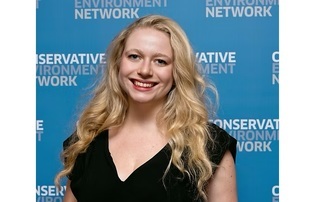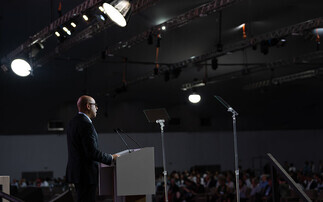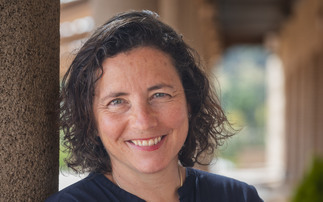Marks & Spencer's Mike Barry argues policy makers must harness business support for a Paris deal to accelerate low-carbon investment
Two trips to Paris has provided a fascinating insight into the COP process. The scale and complexity of negotiations and side events can be overwhelming. This much could be said about many recent COP events but one trend really stands out in Paris, business is finally getting its act together on creating a low carbon economy.
Firstly by creating a positive mood music, encouraging negotiators that strong climate action is good for the economy - protecting assets, making supply chains and communities resilient and creating new markets and jobs. Whilst a small number of negative business voices still lurk around the edges of the discussions, they are increasingly being drowned out by a positive demand for action. It was fascinating observing a B Team event where journalists repeatedly checked with corporate leaders that they supported an ambitious goal of net zero emissions by 2050 to keep the option of achieving a 1.5C warming goal open. And the leaders simply kept re-iterating their support for this bold goal.
M&S is but one player in this broad positive business coalition but we were able to show how in our UK and Ireland operations we'd slashed our own energy use by 35 per cent per square foot; driven down our absolute carbon footprint by 20 per cent; switched to 100 per cent renewable electricity use; only offered our 250,000 M&S Energy customers renewable electricity; ensured 97 per cent of the timber and 100 per cent of the palm oil we use comes from sustainable sources avoiding deforestation; cut greenhouse gas emissions from refrigeration systems by 73 per cent; and offset our remaining emissions to accelerate action on renewables and conserving carbon sinks in the developing world. This proactive work by M&S and many others to tackle our own carbon footprints has given our business voice credibility.
Secondly, businesses have been keen to show the scale of investment that could be unlocked to develop a low carbon economy if a long term agreement is negotiated. Perhaps the single hardest part of the COP21 deal for negotiators is funding. It always is! The private sector cannot cover all the needs for funding but it can take some of the weight off tight government budgets if, and only if, COP21 provides a long term stable policy framework.
Finally business has been at the heart of offering more than supportive words, it has offered solutions too. Business is good at innovating and increasingly at scaling low carbon solutions. For example:
1. The Consumer Goods Forum (CGF) - the group represents many of the world's biggest consumer goods companies (e.g. Nestle, Danone, Carrefour, Walmart, Tesco, Unilever, Coca Cola, P&G, Mondelez and M&S) with a combined turnover of $3 trillion per annum has set bold goals to collectively halve food waste (which if a country would be the third biggest GHG emitter after China and the USA) in its value chains; stop deforestation in its supply chains; and create a shift to low carbon refrigeration. This work is ‘making' low carbon markets beyond the CGF's membership normalised and rolled out.
2. RE100 - Which brings together major corporate energy users to commit to a goal of using 100 per cent renewables. Google is the latest and by far the largest corporate electricity user to go 100 per cent. By grouping together we inject a momentum into global renewables, tackling technology, policy and deployment challenges together. Philips and Ikea are also at the heart of a similar global alliance to deploy 10 billion ultra-efficient LEDs, particularly in the developing world.
3. Breakthrough Energy Challenge - Saw Zuckerberg, Gates, Bezos, Ma, Branson and others launch a massive $5bn fund to find the renewables solutions to transform the world energy system.
4. Collectively - launched its We Got Power initiative to engage millennials in the renewables debate. Business recognises that we cannot create a renewables future just through the right policies and research. We need societal support for the shift too. We Got Power allows students to encourage their universities; fans their sports teams; and consumers their brands to commit to renewables.
This rich mix of innovation, scaling up and engagement shows the potential of business to be at the heart of creating a low carbon future. And as the UK re-sets its renewables policy it needs to recognise the enormous potential of this business commitment to create a low carbon future. UK Government, business and other stakeholders need to look at how we ensure we play a major part in this global movement or we run the risk of missing out on the huge economic and job opportunities that a low carbon shift will offer.
Mike Barry is director of sustainable business for Marks & Spencer.
This article is part of BusinessGreen's Road to Paris hub, hosted in association with PwC.







